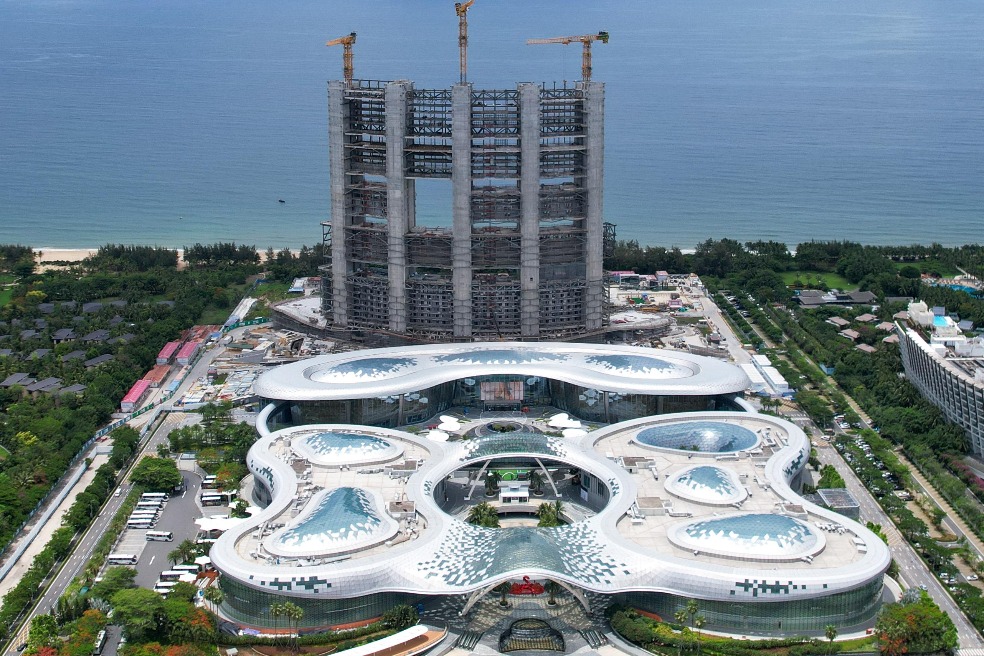Israel strikes Hezbollah's arms facilities in Lebanon

JERUSALEM/BEIRUT/CAIRO — Israel struck what it said were Hezbollah arms facilities in southern Beirut on Saturday after the Lebanese armed group fired rockets into northern Israel and a spokesman said a drone was launched at Prime Minister Benjamin Netanyahu's holiday home.
Netanyahu was not there at the time, and it was not immediately clear if the building was hit. But he described it as an assassination attempt by "Iran's proxy Hezbollah "and called it a "grave mistake", as Israel prepares to retaliate for an Iranian missile barrage earlier this month.
The Lebanese group did not acknowledge the attack, but late on Saturday, Iran's mission to the United Nations said "this action was taken" by Hezbollah.
The strikes came as medics and Hamas media in Gaza, where Israel has been fighting to root out the Palestinian militant group for more than a year, said Israeli bombardments had killed more than 100 people across the coastal enclave and a siege around three hospitals had tightened.
Promises by Israel and its enemies Hamas and Hezbollah to keep fighting have chilled hopes that the death of Hamas leader Yahya Sinwar on Wednesday might lead to truces in Gaza and Lebanon and prevent further escalation in the Middle East.
Officials, diplomats and other sources say that with US elections approaching, Israel is seeking to use intensified military operations to try to shield its borders and ensure its rivals cannot regroup.
On Saturday, Israeli planes dropped leaflets over southern Gaza with a picture of Sinwar and the message: "Hamas will no longer rule Gaza".
Israeli strikes later on Saturday on a multistory building in the northern Gaza town of Beit Lahiya killed at least 73 people and wounded dozens, medics and Hamas media said.
Heavy casualties
The Israeli military is checking reports of casualties from an airstrike in northern Gaza, an Israeli official said, adding a preliminary examination suggested the numbers had been exaggerated and did not match the information it had received.
UN Special Coordinator Tor Wennesland condemned on Sunday Israeli airstrikes in Beit Lahiya, and called for an end to attacks on civilians and urged that displaced Palestinians be protected.
In Beirut's southern suburbs, Israel carried out heavy strikes on several locations, leaving plumes of smoke hanging over the city into the night.
Lebanon's official National News Agency said Israel's strikes on Beirut hit a residential building in Haret Hreik near a mosque and a hospital.
Israel's military said the strikes targeted "a number of Hezbollah weapons storage facilities and a Hezbollah intelligence headquarters command center".
It later said about 70 projectiles fired from Lebanon crossed into Israel within a matter of minutes, and that it intercepted some of them.
Israel had issued evacuation orders for four separate neighborhoods within the suburbs, urging residents to get 500 meters away, but carried out strikes in other areas as well, witnesses said.
Tens of thousands of people have fled the southern suburbs — once a densely populated zone that also housed Hezbollah offices and underground installations — since Israel began regular strikes there about three weeks ago.
Hamas, Hezbollah and allied groups in the region have vowed to keep fighting after Israeli troops killed Sinwar, more than a year into the conflict triggered by Hamas' Oct 7, 2023, attack on Israel.
"Hamas is a reality in Palestine that no one can ignore, no one can destroy," Iranian Foreign Minister Abbas Araghchi said.
Israel's campaign to crush Hamas and bring back the hostages has killed 42,603 people in Gaza, mostly civilians, according to data from the Health Ministry in the Hamas-run territory.
Agencies Via Xinhua

Today's Top News
- Vice-premier to hold trade talks with US in Sweden
- Sovereignty over hydro project reaffirmed
- SCO unites on green growth, cultural bonds
- China plans to venture farther into deep space
- Hainan FTP's independent customs operation set to boost market vitality
- Sea of peace, friendship and cooperation, not an arena for Washington's geopolitical games






























